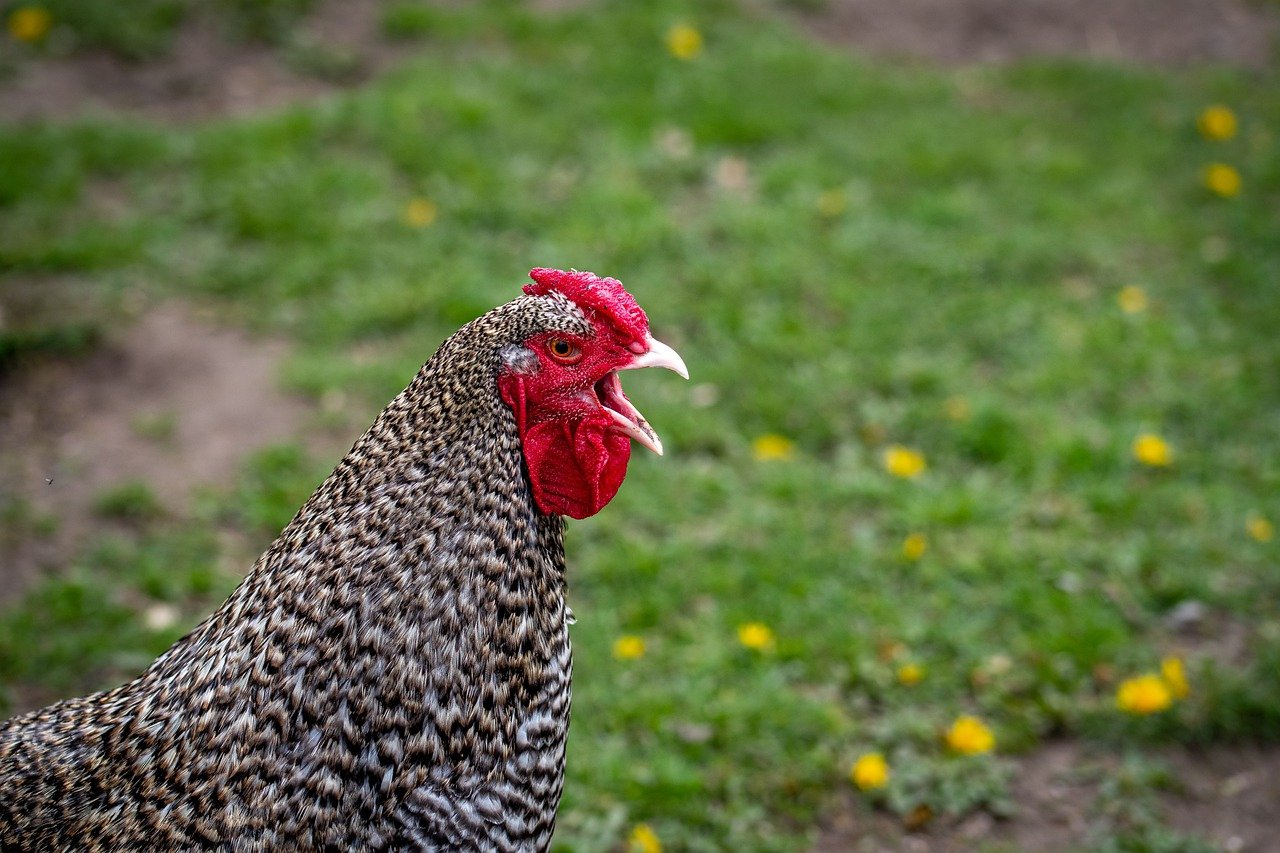Importance of Vitamins in Chicken Health
Vitamins are required in small quantities, but their impact on chicken health is significant. They do not provide energy like proteins or carbohydrates but are vital for metabolic functions. A deficiency in any of these vitamins can lead to serious health issues, reduced productivity, and even mortality in severe cases.
Explore BioPoint (https://biopoint.eu/product-line/poultry/vitamin-and-mineral-supplementation/)'s website for natural animal health products.
Essential Vitamins for Chickens
- Vitamin A - Vitamin A is crucial for maintaining healthy vision, promoting growth, and supporting the immune system. It helps maintain the integrity of epithelial tissues, which form a barrier against infections. Chickens deficient in vitamin A may show signs of poor growth, respiratory issues, and increased susceptibility to infections. This vitamin is especially important for young chicks, as it supports their development and overall resilience.
- Vitamin D3 - Vitamin D3 is essential for calcium absorption and bone health. It plays a significant role in the development of strong bones and eggshells. Without sufficient vitamin D3, chickens can develop rickets, characterized by weak, soft bones, or osteoporosis in laying hens, leading to brittle bones and poor egg quality. Adequate exposure to sunlight helps chickens synthesize vitamin D3 naturally, but supplementation is often necessary, especially in confined environments.
- Vitamin E - As an antioxidant, vitamin E protects cells from oxidative stress and supports immune function. It is particularly important in protecting chickens from diseases related to oxidative damage. Deficiency in vitamin E can lead to muscular dystrophy, reproductive issues, and impaired immune response, making it a critical component of a chicken's diet.
- B Vitamins - The B vitamins, including B1 (thiamine), B2 (riboflavin), B6, and B12, are vital for energy metabolism, nerve function, and red blood cell formation. These vitamins support growth, egg production, and overall vitality. A deficiency in B vitamins can lead to poor growth rates, anemia, and reduced egg production. Riboflavin (B2) is particularly important for embryo development in eggs, making it essential for breeding flocks.
- Vitamin K - Vitamin K is necessary for blood clotting and bone health. Chickens with a deficiency in vitamin K are at risk of excessive bleeding and may have difficulty recovering from injuries. This vitamin is also involved in bone metabolism, supporting the structural integrity of the skeleton.
Vitamin Deficiencies and Their Impact
Vitamin deficiencies can have a profound impact on chicken health and productivity. For instance, a lack of vitamin A can lead to respiratory infections and poor growth, while insufficient vitamin D3 results in weak bones and poor eggshell quality. Vitamin E deficiency can compromise the immune system, making chickens more vulnerable to diseases. Deficiencies in B vitamins can cause neurological disorders, poor growth, and reproductive issues.
Recognizing the signs of vitamin deficiencies early is crucial for preventing long-term damage to the flock. Symptoms may include poor feathering, lethargy, decreased egg production, and increased disease susceptibility. Prompt dietary adjustments can help mitigate these issues and restore the health of the flock.
Ensuring Adequate Vitamin Intake
To prevent deficiencies, poultry farmers must provide a balanced diet that meets the nutritional needs of their flocks. Commercial poultry feeds are typically formulated to include all essential vitamins in the correct proportions. However, certain conditions, such as stress, illness, or high egg production, may increase the vitamin requirements of chickens, necessitating additional supplementation.
- Supplementation - Vitamin supplements can be added to feed or water to ensure chickens receive adequate nutrition, especially during critical periods such as growth, laying, or recovery from illness. It’s important to follow recommended dosages to avoid overdosing, which can be harmful.
- Natural Sources - Providing access to fresh greens, such as kale or spinach, can boost vitamin A levels, while sunflower seeds and wheat germ are rich in vitamin E. Allowing chickens outdoor access to natural sunlight can help them synthesize vitamin D3. A diverse diet that includes natural sources of vitamins can enhance the overall health of the flock.
Monitoring and Management
Regular monitoring of flock health is essential to detect any signs of vitamin deficiencies early. Farmers should observe their chickens for changes in behavior, appearance, and productivity. Periodic health checks and consultation with a poultry nutritionist can help ensure that the diet is meeting the flock's needs.
Adjustments to the diet, including the introduction of supplements or changes in feed composition, may be necessary to address specific health concerns or to optimize productivity. By staying vigilant and proactive, poultry farmers can maintain the health and productivity of their flocks, ensuring a sustainable and successful operation.
Vitamins are fundamental to the health, growth, and productivity of chickens. By understanding the role of essential vitamins and ensuring that flocks receive adequate nutrition, poultry farmers can prevent deficiencies, boost immunity, and enhance egg production. A well-balanced diet, combined with careful monitoring and appropriate supplementation, is key to maintaining a healthy and thriving flock.





